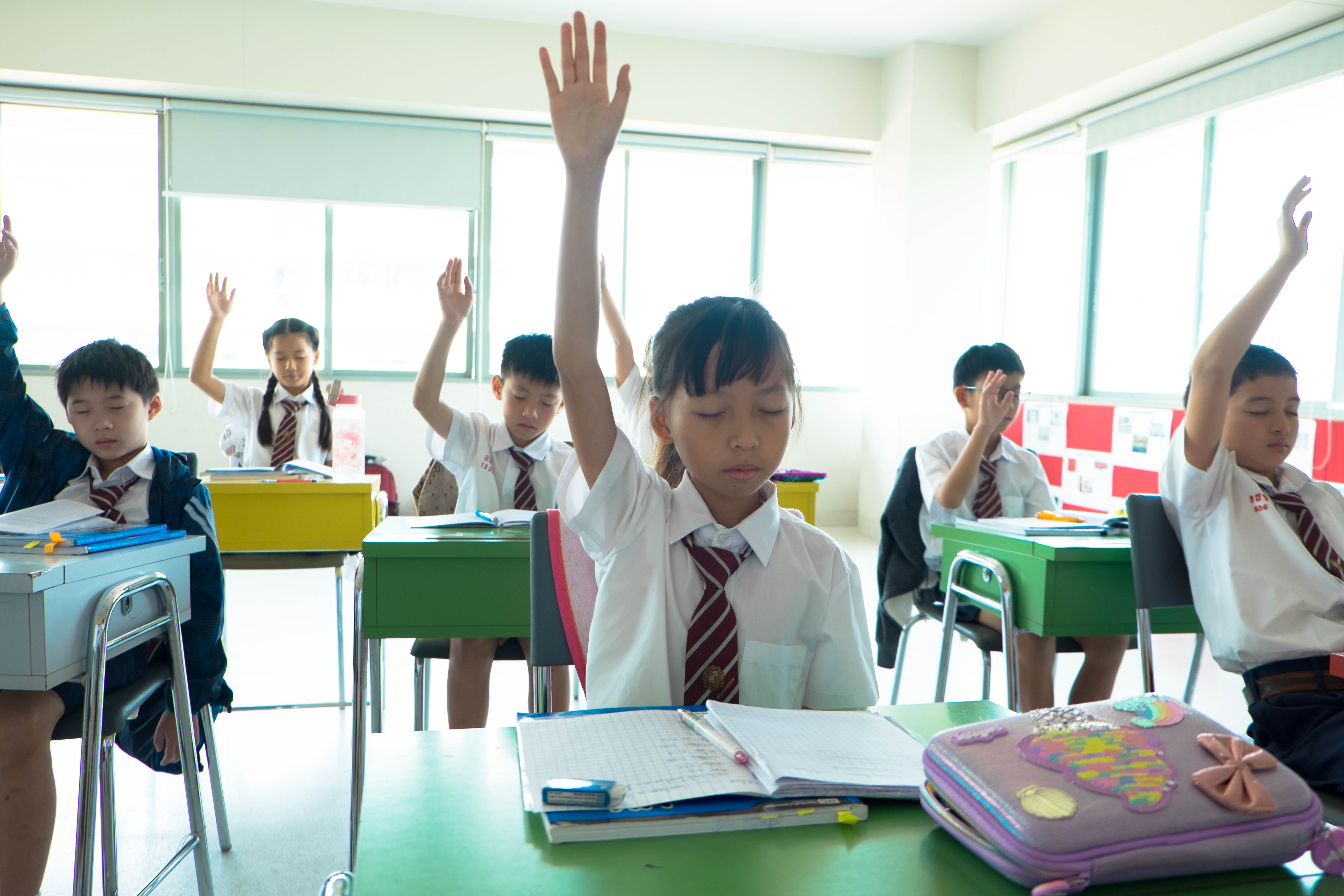“You’re not being consistent enough”!
“He behaves that way because he knows he can get away with it.”
“It’s not fair to the other kids that she is getting special treatment.”
As a teacher, I know I’m regularly judged for being unfair and inconsistent with kids. This is one of the worst things to be accused of. It comes with the presumptions that you are incompetent, lazy, and weak. If you are a parent or educator, perhaps you’ve been judge for this as well.
The rules of consistency and fairness have been so grilled into us that few would question their validity. Lack of consistency is our most common “go to” explanation when a child is misbehaving, and fairness is something we all have become obsessed with. But as many of us know, these seemingly simple concepts are way more complex when applied to real life.
In my classroom, there are often several kids that are exhibiting similar behaviors at the same time. In these moments, I am consistently inconsistent and justly unfair.
Just the other day, there were three kids all having tantrums and refusing to get ready at the end of the day. Each of these kids were equally capable of getting ready on their own, but I responded very differently to each one.
I reminded Emily that she was very capable, and then firmly insisted that she do everything herself. I made it clear that if she chose not to, she would miss her bus which would result in her parents having to be called to come pick her up.
I consoled Andrew and offered to zip his coat, tie his shoes and carry his backpack for him.
And even though Kyle was being particularly rude, I pretended not to notice his bad behavior and suggested that I might need his help delivering something to another class if he was able to get ready in time.
Without context, my responses may have seemed harsh, unfair, or neglectful. Depending on your own beliefs, you may have judged me for being too hard on Emily, overly coddling Andrew or letting Kyle get away with bad behavior.
Although my approach may have seemed random to an onlooker, there was a method to my madness. Or rather I should say, “the method is the madness” and there was thoughtful intention behind my refusal to enforce the same rules for everyone.
If you had more information, you’d know that Emily had adopted an unhealthy belief of not being capable that lead to a habit of helplessness. In that moment, she needed a push out of her comfort zone with a firm approach.
If you had more information, you’d know that Andrew has a new baby brother and he was feeling a little neglected at home. His mom had shared in the morning that he’d been up almost all night with his brother crying and so by the end of the day he was exhausted! Forcing him to get ready by himself would have been counterproductive and made him feel unsupported in a moment when he genuinely needed at little extra nurturing. Don’t we all have moments like that?
If you had more information, you’d know that Kyle had received negative messaging in his early life, which had created an unhealthy pattern of seeking negative attention to prove his theory that he’s “bad”. Ignoring Kyle’s bad behavior and offering him an opportunity to be helpful was the best way to help him view himself in a more positive light.
Truthfully, it wasn’t really this information that prompted me to respond the way I did. The reality is, we never have all the information we need to respond to kids in a way that truly takes into account all that is unseen. Even if we did, in the chaos of the moment we wouldn’t have time to consider these countless factors to make a carefully calculated decision.
How did I determine which response was best for each child?

What I was really doing was challenging my deeply ingrained beliefs and ignoring the judgmental voices in my mind, so that I could tune in to each individual child in that particular moment. I was less in my head and paying more attention to my heart and my gut.
You may say this is “counter-intuitive” but in fact it is “pro-intuitive” and counter to everything we’ve been taught about how to be effective with kids.
Ironically, it is often our attachment to the idea of being fair and consistent that creates a tunnel vision that makes it difficult for us to see what a child really needs in the moment.
This happens so often when we rigidly follow a method or respond based on our unconscious conditioning. No matter how well-proven our method or logical our belief, if it disconnects us from being present to the child in the moment, then our response will likely miss the mark and end up doing more damage than good.
Some moments demand a firm approach and other moments require softness. At times we need to stick to our guns and occasionally we need to let things go. Humor is helpful, but a more serious tone is sometimes necessary. The best way to know how to respond is to be less rigid and more “real” in the moment.
We are human and our kids are human too. We are not going to get it right 100% of the time, but the more we give ourselves and our kids permission to be real, the more likely we will be able to respond in a way that truly serves their best interest and ours.
What keeps us so attached to the rules of fairness and consistency?

1) We fear that if we do not provide the optics of fairness, kids will perceive their experience in a way that will impact their self worth.
While we are right to be concerned about a child’s self worth, I think we can give kids more credit on this one. Even if they may not fully understand our choices intellectually, kids easily pick up on the energy and intention behind our actions.
When our heart is in the right place, most kids will naturally understand the need for these discrepancies. If anything it is our concern with the optics of fairness that sends them the message that fairness is something they need to obsessively monitor.
From what I’ve observed, kids seem to have the ability to pick up nuances more than we do. When I’m unsure about what’s going on with a child, I often turn to other kids for insight. They’ll tell me, “He’s upset because he feels left out”, “She’s not following along because she doesn’t understand what your saying.” They just seem to know. Why? Because they are naturally more connected.
Don’t mistake me, when kids point out what seems unfair to them, we definitely need to listen. Not so we can work harder to make everything the same or dismissively tell them “Life’s not fair!”, but so that we can understand the deeper reasons why they may be feeling this way.
When a child is overly focused on fairness this could indicate a couple of things…
- There may be a deeper reason they are feeling mistreated that needs to be heard, understood and addressed.
- They might have some unhealthy beliefs that are influencing them to take in the world through the lens of what’s working for others and what’s not working for them. This creates a skewed perception that has them interpreting almost every experience as “unfair”.
When we uncover the emotions and beliefs beneath the perceived unfairness, then we can address what’s at the root and possibly save kids from a lifetime of feeling hard done by.
I believe it is important to help kids understand the need for us to respond based on individual differences. We are doing them a disservice by sending the inaccurate message that fairness means that everything is the same for everyone in the moment and on the surface.
When we help kids see the bigger picture and understand that everyone has unique circumstances, they will begin to see through the lens of empathy and compassion rather than through the harmful filter of comparison and competition.
Of course there are true injustices in the world and in their experience that we should not turn a blind eye to. Ironically, the more we are able to move beyond a simplistic concept of fairness, the more we will be able to address a child’s experience with true fairness and help them to better understand and respond to the injustices of the world. With a more objective perspective, they won’t be so obsessed with petty fairness.

2) We fear that if we’re not consistent enough, we will set a precedent for future behavior.
This fear comes from a lack of understanding about what really drives human behavior. We often think that we must “train” kids the same way we would an animal, by consistently rewarding positive actions and enforcing immediate consequences for negative actions. We believe that if we don’t “follow through” even just once or twice, the child will get the message that they can “get away” with the behavior and they will be ruined forever!
This is simplistic thinking. Kids are more driven by what is going on within them, than they are by all the external conditions we put in place to control their behavior. In order to have the most long-term positive affect on a child’s way of being, we should be more focused on creating the internal conditions for positive action to be inspired from within. To accomplish this, it is more important for us to be tuned in and responsive to what is going on within them, rather than just reacting to surface behaviors.
Every moment consists of a different set of circumstances and unseen factors that affect how we feel and what we have to offer. Our energy levels, our emotions, our environment, etc., are always in constant fluctuation making true consistency virtually impossible. Demanding consistency from ourselves or from our kids is not just unrealistic, it’s inhumane!
How then do we ensure we are responding in every child’s best interest?
1) We can take care of ourselves and manage our energy so that we are able to meet each moment with the presence and clarity to respond wisely (and forgive ourselves quickly when we don’t).
2) We can address our outdated beliefs and unresolved emotions so that we respond to the child’s needs, rather than react to our own triggers.
3) We can educate ourselves on developmental expectations, individual differences, and learn more about the backgrounds of kids in our care so that we can be more objective and reasonable with our demands.
4) We can give ourselves permission to flow with the unpredictable and ever-changing circumstances of life, rather than judging ourselves for not being able to remain rigidly consistent and fair in every moment.
What about rules, routines and boundaries?

There is no denying that kids benefit from a predictable routine, clear expectations and reasonable boundaries. And to be real, especially in environments where there’s a lot to manage there are times when the rules need to be the same for all for the sake of safety, order and sanity.
However; instead of focusing primarily on consistency and fairness, our goal should be to provide balance and stability. This isn’t accomplished through “sameness” and “rigidity”; it’s developed by a child regularly being met with a response that takes into consideration not just the “rules” but their needs as well.
It’s time we recognize that the “one size fits all” and “zero tolerance” approaches don’t make kids better. It just has them feeling more and more misunderstood and puts them in a box that they will spend the rest of their lives trying to break free from.
So next time someone accuses you of not being fair or consistent enough with kids, say “thank you”, because even if they don’t realize it, they’re giving you a compliment 😉
Like these ideas and interested in learning more? Gain free access to my learning community here.
Other articles by Sheila Sims:
What Kids Really Mean When They Say “It’s Not Fair!”
My Teaching Fail that Revealed the Answer to “Difficult” Behaviors in Kids
I Did the Opposite of What a Rational Parents or Teacher Would Do


